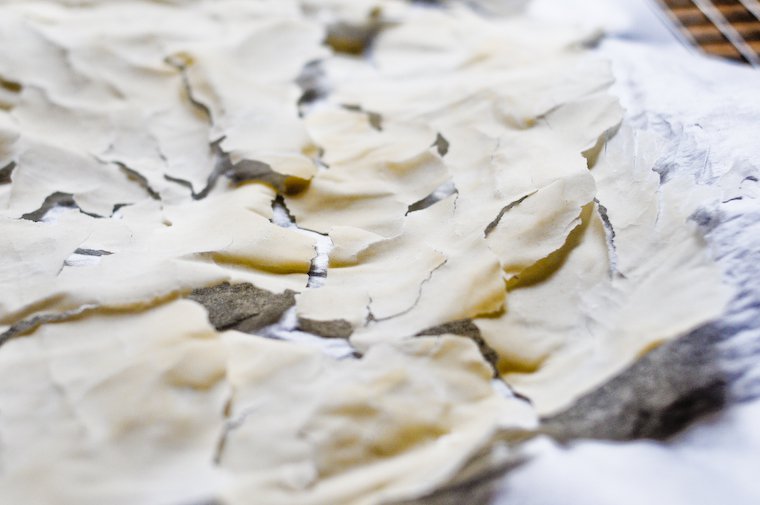When people get curious about baking with a sourdough starter and I explain how it works, I can tell they are a little freaked out by this idea of keeping the culture alive, day in, day out, for ever and ever.
“This is too much responsibility,” they say, followed by variations on “This is why I don’t have kids!” or “Houseplants all die under my care!” and “What about my trip to Marrakech?”
I understand the sentiment, so I’m always quick to point out that a sourdough starter can be kept in the fridge for a little while without the skies caving in, and that if “a little while” becomes “indefinitely”, you can always dehydrate the precious blob into a dormant matter that won’t require regular attention.
This is a handy procedure if you’re about to go through a period of time when you won’t be able to care for it consistently or bake with it, but also if you’d like to share your sourdough culture with a friend who lives far away, and also if you’re smart and want a backup copy to restore in the event that your live starter has a disk failure (i.e. dies).
It’s very easy, and requires no special equipment.
First, you’ll need to feed your starter a few hours beforehand, so that it’s at its peak ripeness when you start dehydrating it — in other words, you want it to contain a maximum number of live micro-organisms.
Plop two tablespoonfuls of the starter onto a sheet of parchment paper or a clean silicon baking mat, and use a flexible spatula to spread it as thinly as you can all over the sheet.
Place the sheet on a cooling rack (for maximum air circulation) and set aside in a warm (but not too warm) spot of the house until completely dry and crackly. Depending on the hydration of your starter, the thickness of the spread, and the weather, this could take anywhere from a few hours to a day.
Break the dehydrated starter into pieces, place in a freezer bag and crush into smaller flakes with a rolling pin. Transfer to a small jar, close tightly, and keep somewhere cool and dry until ready to rehydrate. Theoretically, it should keep for years and years, though I’ve only tested it for a few months myself.
To rehydrate, place about 10 grams (1/3 ounce) of the dehydrated starter flakes in a straight-sided jar and cover with the same weight in fresh water. Let stand for 10 minutes to soften, then stir to dissolve. Feed with the same weight of flour and water, as described here, and repeat daily until the starter is back on its feet, bubbling and rising in its jar.















